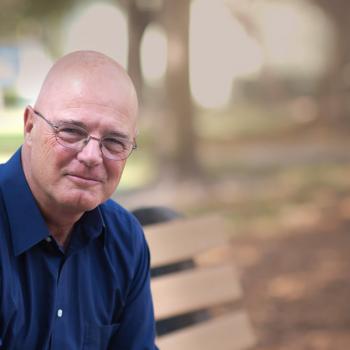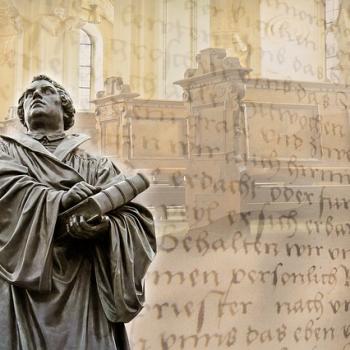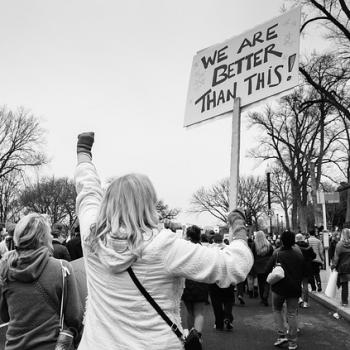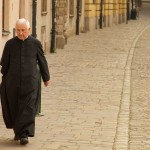I’ve been thinking about Christian identity a lot lately.
An election year makes such thinking inescapable, as Christian identity is linked with any number of political ideologies. On top of that, my next book is on Christian identity in a multi-faith world—exploring the ways that religious identity can predispose us toward hostility or hospitality.
Of special interest to me is how the experience of worship forms us, consciously or unconsciously, in one kind of Christian identity or another.
For example, singing “Onward Christian Soldiers” has a spiritually forming effect (otherwise, why sing it?), one that sends us into the world “against the foe,” which isn’t necessarily compatible with “in love for neighbor and enemy.” A more contemporary worship song asks God to “give us the lost” and to do so “for our inheritance,” which both commodifies non-Christians and puts us Christians in the position of ownership—a somewhat imperial mindset, if not a plantation mindset.
Along with songs, prayers form us: reinforcing or overturning prejudices, kindling fear or confidence, telling us what is important by what is requested and distracting us from other things by not asking for them.
If Christians are adrift, or barreling full-speed down the wrong track, or stuck, or moving in reverse with eyes glued to the rear-view mirror, public worship will likely be both part of the problem and part of the solution.
That’s why I was thrilled to listen to “Blessed to be a Blessing,” a new liturgy produced by Aaron Niequist and friends from Willow Creek Community Church. For people who casually dismiss Willow Creek as “just another megachurch,” or for traditionalists who have little use for music written after 1930 (or 1860, or 1780), this “worship set” will demonstrate possibilities that are too-seldom seized.
In style, “Blessed to be a Blessing” is contemporary in instrumentation, but anthemic in style. In content, it combines “liberal” concern for neighbor with “evangelical” passion—a combination sorely needed on both sides of the aisle. The glue that holds it together is the songwriting of Aaron Niequist, as these lyrics make clear:
I want to bless — whoever I see next I want to give —
not just use and forget I want to leave — more than thoughtless regret
Not gonna run away
I want to give — even when I feel poor To let it go —
when I want to keep score I want to hear — who is always ignored
Not gonna back awayI’m only a part of the story
But wholly a part of the story
So I’ll take my part in the story
Get out of myself
Get over myself
Get lost in the story of somebody else
In another song, he sings, “We have been changed to bring change, to bring change,” and “Bridges are more beautiful than bombs are . . . An open hand is stronger than a fist is . . . But Love—Love can change the world.”
As I listened, I kept thinking, “This is what the experience of public worship can be: bringing people together to have their desires, values, and vision formed by songs and prayers like these.” So, move over, both sides of the decades-old worship wars, there’s something new on the block that both sides should recognize as a step higher up and deeper in.
Worship, ultimately, is about honoring God for who God is. Too often, though, we assume an answer to the question of who God is by projecting a larger image of ourselves with all our prejudices, ideologies, and presumptions. If the God we worship is a projection of who we are now, our worship will form in us a hardened version of our current identity. But if our vision of God is ahead of us—better, more compassionate, more wise—our experience of worship will change our identity as it brings the radiance of God’s identity more fully into view. Niequist is right: love can change the world. And so can worship that evokes and celebrates the world-changing love of God.











